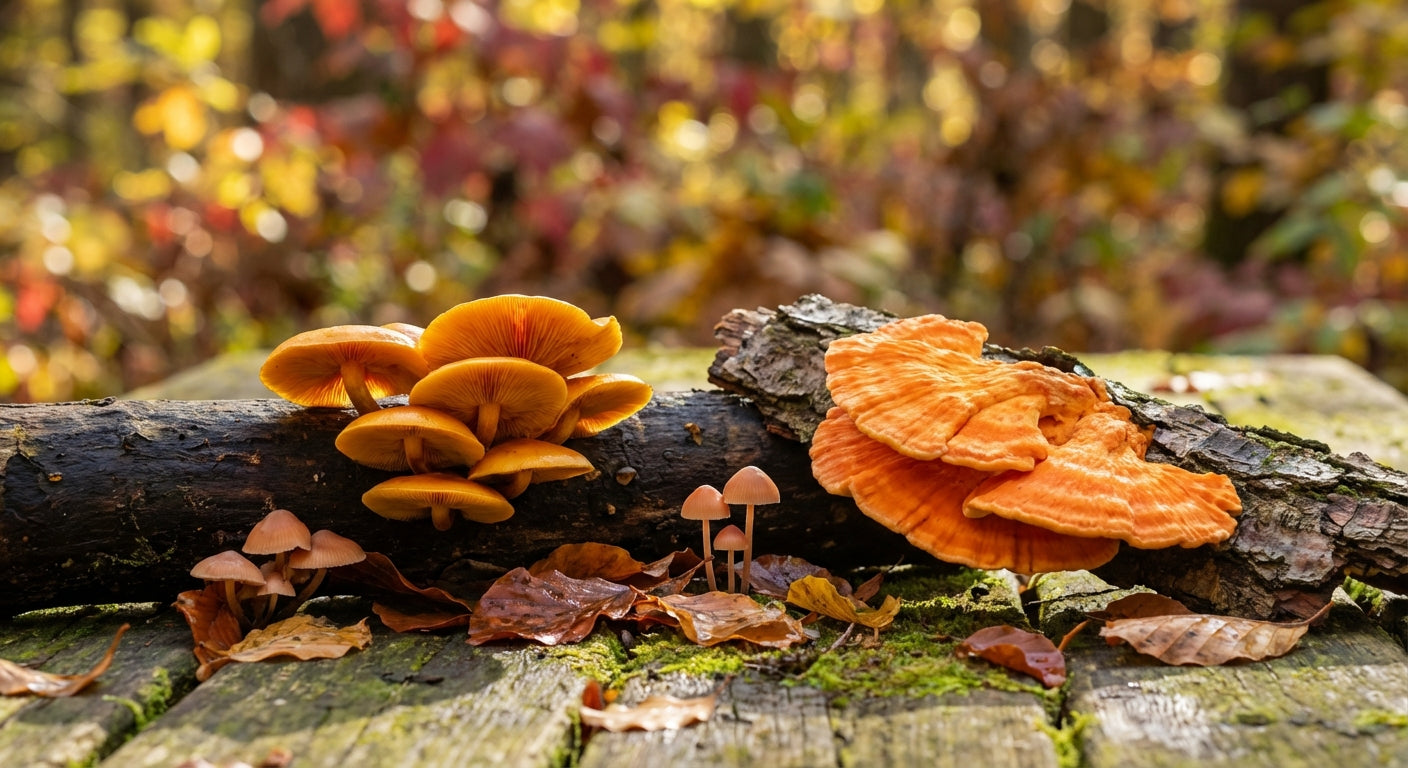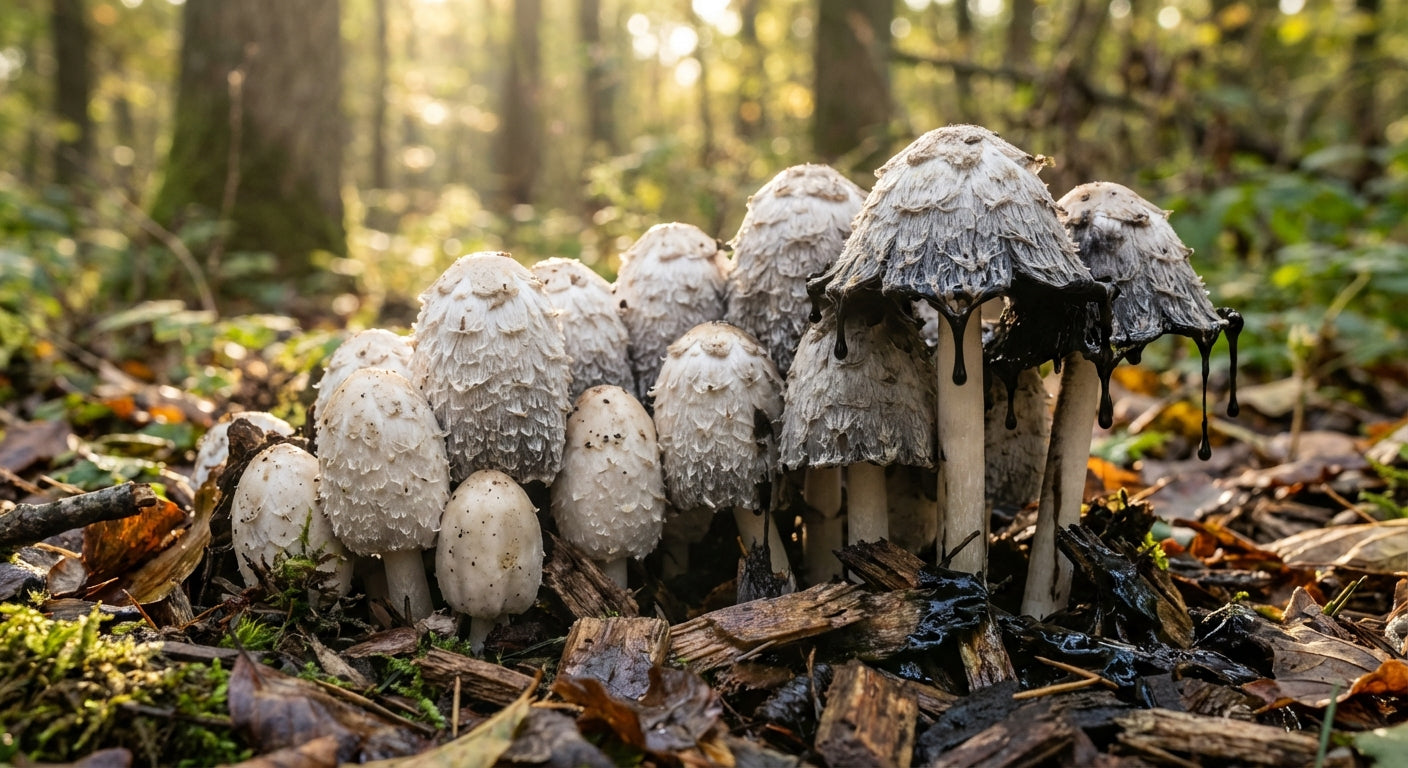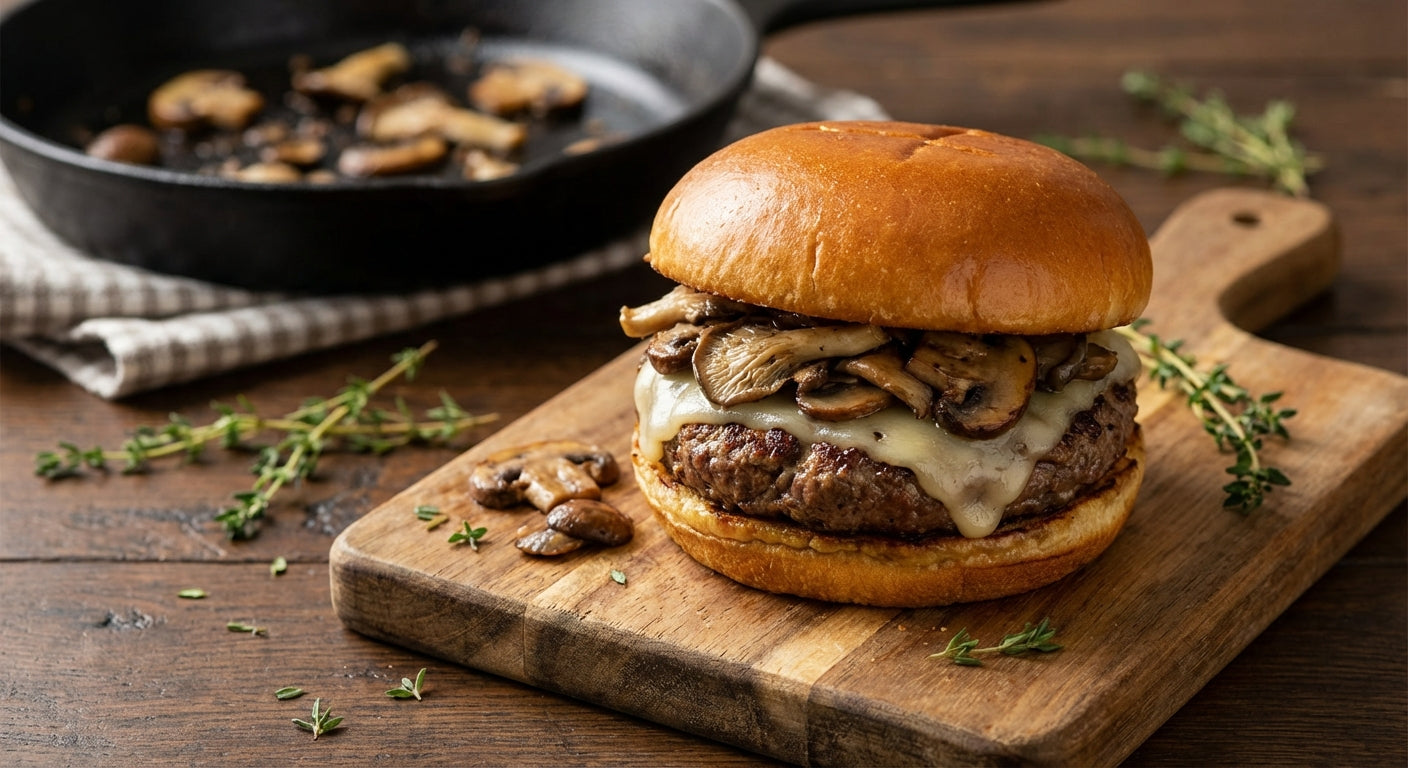Lion's mane mushroom has gained tremendous popularity as a cognitive enhancer and neuroprotective supplement, but many people wonder: how much lion's mane is too much? While this remarkable fungus is generally considered safe, understanding proper dosage limits ensures you get maximum benefits without experiencing unwanted side effects.
Most clinical studies use lion's mane doses ranging from 500mg to 3000mg daily, with research showing safety at up to 1 gram daily for 16 weeks. However, the upper safe limit isn't just about avoiding toxicity—it's about optimizing benefits while preventing overstimulation of your nervous system.
Understanding Safe Lion's Mane Dosage Ranges
Research-Backed Dosage Guidelines
Clinical research provides clear guidance on how much lion's mane is safe for daily consumption. The recommended daily dosage ranges between 500mg and 3,000mg, ideally taken in divided doses with food to support absorption and reduce digestive upset. Most studies focus on this range because it provides cognitive benefits without adverse reactions.

Recent clinical trials, including a 2023 study with healthy adults aged 18-45, used daily doses of 1.8 grams (1800mg) for 28 days with positive results and minimal side effects. This provides a practical middle ground for most users seeking cognitive enhancement benefits.
Beginner vs Advanced Dosing
New users should start conservatively to assess individual tolerance. Beginners may start with 500mg-1,000mg daily to assess individual tolerance and monitor any potential side effects. This approach helps identify sensitivity issues before committing to higher therapeutic doses.
Advanced users familiar with lion's mane can safely use higher doses within the research-supported range. For cognitive benefits related to focus, memory, mood and overall brain health, 500mg-1,500mg daily may be recommended, while studies addressing mild cognitive impairment suggest 2,000-3,000mg daily.
What Happens When You Take Too Much Lion's Mane
Overstimulation of Nerve Growth Factor
The primary concern with excessive lion's mane consumption involves overstimulating nerve growth factor (NGF) production. Exceeding the upper threshold may overstimulate nerve growth factor, increasing the risk of side effects—particularly in people with gut or neurological sensitivities. This overstimulation can make your nervous system hyperreactive rather than optimally supported.
Understanding NGF's role helps explain why more isn't always better. Nerve Growth Factor is a natural substance that helps nerves grow, stay healthy, and repair themselves when damaged. However, excessive stimulation can create imbalances that counteract the benefits you're seeking.
Physical Side Effects of Excessive Consumption
Excessively high doses may be associated with digestive discomfort including bloating, nausea, or diarrhea, and rare allergic reactions such as skin rashes or itching, particularly in people sensitive to mushrooms. These symptoms typically resolve when dosage returns to appropriate levels.
Clinical data shows that side effects are generally mild and may include stomach discomfort, with more serious reactions being rare. However, individual sensitivity varies, making personal assessment crucial for finding your optimal dose.
Neurological Sensitivity Concerns
People with existing neurological conditions or heightened sensitivity may experience amplified effects from standard doses. Excessive lion's mane can make the nervous system more reactive, especially for people with sensitive digestion or pre-existing neurological imbalances. This emphasizes the importance of starting conservatively and monitoring your response.
Diminishing Returns: Why More Isn't Better
Research Shows No Additional Benefits Above 3000mg
Research does not support enhanced benefits above 3,000mg daily, and some studies have not demonstrated significant improvements at higher levels. In fact, one study using 10 grams daily in college students found no cognitive benefits, suggesting that massive doses may be counterproductive.
Researchers studying 24 college-age students found no effect on cognition after supplementation with 10 grams of lion's mane per day for four weeks. This demonstrates that exceeding reasonable dosage ranges doesn't enhance effectiveness and may waste resources.
Optimal Absorption and Bioavailability
Your body has limited capacity to absorb and utilize lion's mane compounds effectively. Taking excessive amounts can overwhelm these processes, leading to waste elimination rather than increased benefits. Fresh lion's mane mushrooms grown at home may offer superior bioavailability compared to high-dose supplements because they provide compounds in natural ratios your body recognizes.
Economic Considerations
Using more than necessary wastes money without providing additional benefits. Growing your own lion's mane with a Smart Mushroom Grow Kit provides fresh mushrooms that are often more potent than supplements, allowing you to achieve desired effects with smaller quantities and lower costs.
Individual Factors That Affect Safe Limits
Body Weight and Metabolism
Larger individuals may tolerate higher doses, while smaller people might achieve optimal effects with lower amounts. However, body weight alone doesn't determine ideal dosage since lion's mane works primarily through neurological pathways rather than simple mass distribution.
Pre-existing Health Conditions
Certain health conditions require extra caution, including autoimmune diseases where lion's mane might increase immune system activity, bleeding conditions where it may slow blood clotting, and diabetes where it might affect blood sugar levels. These individuals should consult healthcare providers before using lion's mane.

Medication Interactions
Lion's mane may interact with diabetes medications by lowering blood sugar further, and medications that slow blood clotting may have enhanced effects when combined with lion's mane. These interactions can affect your safe dosage limits and require medical supervision.
Fresh vs Supplement Dosage Differences
Bioavailability Advantages of Fresh Mushrooms
Fresh lion's mane offers superior bioavailability compared to processed supplements, meaning you may need smaller amounts to achieve similar effects. When you grow your own using proven cultivation techniques, you control freshness and potency, potentially requiring lower doses than commercial supplements.
Conversion Ratios and Equivalencies
Understanding fresh-to-supplement ratios helps prevent overconsumption. Generally, 3-5 grams of fresh lion's mane provides effects similar to 500-1000mg of concentrated extract. This natural form includes the full spectrum of beneficial compounds that work synergistically.
Quality Control Benefits
Growing your own eliminates concerns about supplement contamination or reduced potency from storage. The Smart Mushroom Grow Kit ensures you harvest at peak potency, maximizing benefits while minimizing the risk of consuming too much to compensate for poor-quality products.
Timing and Frequency Considerations
Daily vs Periodic Dosing
Consistent daily usage is important to unlock lion's mane's full range of benefits. However, some people prefer periodic dosing (5 days on, 2 days off) to prevent tolerance and maintain sensitivity to its effects. This approach may also reduce the risk of consuming too much over time.
Optimal Timing for Absorption
Taking lion's mane with meals improves absorption and reduces stomach upset. Dividing daily doses between morning and afternoon provides sustained benefits while preventing the concentration spikes that might occur with single large doses.
Signs You're Taking Too Much Lion's Mane
Early Warning Indicators
Watch for digestive changes, unusual nervousness, or heightened sensitivity to stimuli. These early signs suggest you may be approaching or exceeding your optimal dose. Other mushroom varieties in your diet may also contribute to total fungal compound intake.
When to Reduce Dosage
If you experience persistent digestive issues, sleep disturbances, or increased anxiety after starting lion's mane, consider reducing your dose or taking breaks. Sometimes these symptoms resolve as your body adjusts, but persistent issues warrant dosage modifications.
Monitoring Long-term Use
While there's no clinical data showing long-term toxicity in humans, it's important not to exceed label guidance, especially when combining with other nootropic or mushroom supplements. Regular assessment of benefits versus side effects helps maintain optimal dosing long-term.
Frequently Asked Questions
What happens if I accidentally take too much lion's mane? Lion's mane is considered safe and non-toxic, so accidental overconsumption rarely causes serious harm. You might experience digestive discomfort, but this typically resolves within 24 hours as the excess clears your system.
Is 5000mg of lion's mane daily dangerous? While not necessarily dangerous, 5000mg significantly exceeds research-supported dosages and unlikely provides additional benefits. No clinical data supports enhanced benefits above 3,000mg daily. Consider reducing to proven effective ranges.
Can I build tolerance to lion's mane that requires higher doses? Unlike some supplements, lion's mane doesn't typically create tolerance requiring dose escalation. If effects diminish, examine product quality, timing, or consider cycling rather than increasing dosage.
Should pregnant women limit lion's mane intake more strictly? There isn't enough reliable information about safety during pregnancy or breastfeeding, so it's best to avoid use or consult healthcare providers. Pregnant women should err on the side of extreme caution with any supplements.
Do fresh lion's mane mushrooms have the same dosage concerns as supplements? Fresh mushrooms generally have lower concentrations of active compounds, making overconsumption less likely. However, eating large quantities daily could still provide excessive amounts. Learn about proper harvesting timing to optimize potency and dosing.
Featured Snippet Summary
Most research supports 500-3000mg of lion's mane daily as safe, with no additional benefits above this range. Excessive amounts may cause digestive discomfort and overstimulate nerve growth factor without enhancing cognitive benefits. Start with 500-1000mg daily and increase gradually based on individual response.
Grow Your Own Optimal-Dose Lion's Mane
Skip the guesswork of supplement dosing and grow fresh, potent lion's mane mushrooms with precise control over quality and quantity. The Lykyn Smart Mushroom Grow Kit makes cultivation incredibly simple, providing you with fresh mushrooms that deliver optimal benefits without the concern of overconsumption or contaminated supplements. With automated environmental controls and comprehensive growing guidance, you'll harvest premium lion's mane at peak potency while learning exactly how much works best for your individual needs. Experience the peace of mind that comes with knowing exactly what you're consuming and how it was grown.
















Share:
Lion's Mane Supplement: Your Complete Guide to Cognitive Enhancement
Lion's Mane Extract: Your Complete Guide to Nature's Brain Booster